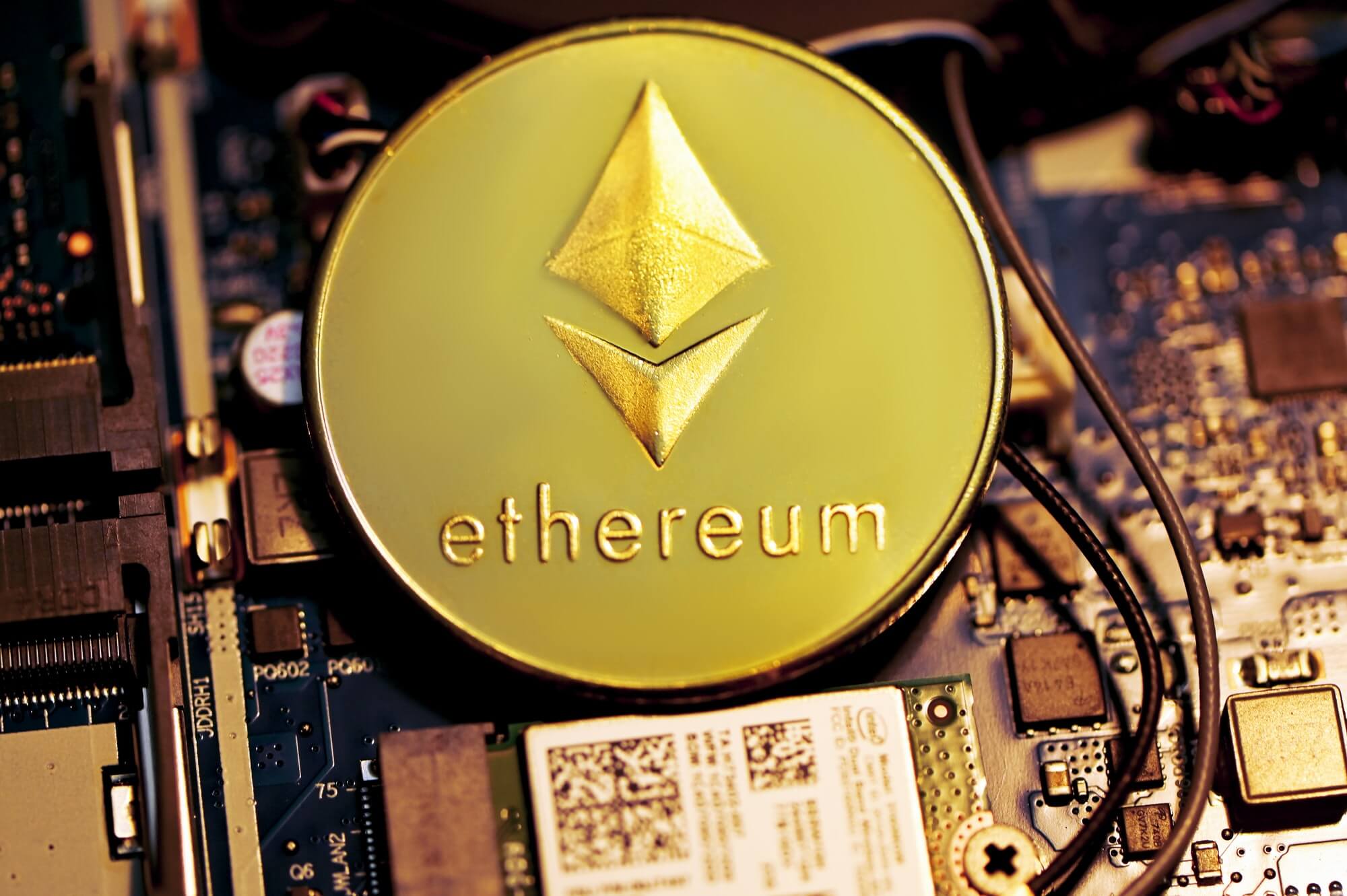This Week in Crypto
The top news in crypto this week. We're talking Non Fungible Tokens (NFTs), Ethereum (ETH) scaling, Yield Guild Games (YGG) and Chainlink (LINK).

High Gas Fees Bring Trouble and Opportunity
The Ethereum (ETH) network is experiencing congestion, leading to an increase in network fees, called "gas fees." Miners operating the Ethereum network charge gas fees to handle transactions. Today, a single Ethereum network token transfer costs roughly $25. For apps operating on Ethereum, such as decentralized exchanges (DEXs), a single process can take multiple transactions. A trader swapping two assets on Uniswap can expect to pay at least $75 for a single swap.
The decentralized finance (DeFi) economy has seen massive growth over the last year, and the Ethereum network has been congested for weeks-long stretches over this period. Historically, the NFT economy is harmed by higher gas fees, because collectors and gamers are less willing to make small-value transactions. Stablecoins, like USD Coin (USDC) and Tether (USDT), operate on the Ethereum network. Just as with NFTs, consumers are less willing to do small transactions in a stablecoin when the gas fees are high.
This isn't the first time the Ethereum network has become badly congested. The Ethereum software team has been developing scalability fixes for years, but they're notorious for lagging behind network growth. These recurring problems have opened the door for competitors offering faster and cheaper transactions, with several gaining major traction: Cardano (ADA) ($91 billion market cap), Solana (SOL) ($43 billion market cap), and Polkadot (DOT) ($33 billion market cap).

Coinbase is Adopting Polygon to Scale Ethereum
This week, Coinbase announced the creation of a new Protocol Team, described as “a dedicated/experienced group of engineers at Coinbase focused on contributing to scaling blockchains and community building.” Some of the early projects the Protocol Team will be working on will involve contributing to the Ethereum Foundation by building infrastructure for testing and being early testers, as well as building out Coinbase’s integrations with Ethereum Layer 2 (L2) scaling solutions. They’ve identified Polygon as their first target for L2 scaling.
Layer 2 scaling solutions for Ethereum are secondary projects that sit on top of the Ethereum blockchain and allow for more scalability and efficiency, all while letting you interact with the entire Ethereum ecosystem. Right now, moving between Polygon and Ethereum is a fairly complicated process; however, Coinbase wants to make it simpler for their customers, so no one misses out on the growing Ethereum ecosystem due to fees.
Presently, Ethereum is able to handle ~30 transactions per second and Polygon can handle ~4,000. Ethereum recently released an update that slightly decreased fees and they are working on a number of solutions to increase the transaction throughput, which would serve to further decrease said fees. Proof of Stake (estimated release in early 2022) is the most notable proposed solution, with more scaling solutions scheduled thereafter. Over the past few weeks, Ethereum has seen transaction fees occasionally dip into the hundreds as NFT and DeFi traffic increases.
The Takeaway: Coinbase has built a team to work on Ethereum scaling, both internally by building out support for Layer 2 solutions and externally by supporting the Ethereum Foundation’s development efforts.

Yield Guild Games Spotlight
A new style of gaming has become popular in the world of crypto games called “Play to Earn.” In Play to Earn games, players are rewarded crypto tokens from gameplay that can be sold and converted into any other form of currency. The biggest game in this space right now is Axie Infinity (AXS), which has nearly a million players and has generated $343M in the past month. Here’s where it gets crazy though: half of those players are from the Philippines and many of them are doing this as a full-time job. Some individuals are reportedly earning ~$20/day, which can be as high as 5-10x their previous pay.
To get started in Axie, players need to have three of the game’s creatures, which sell for roughly $500 each. In the Philippines, an up-front investment of $1,500 is pretty steep, but that’s where the services of Yield Guild Games (YGG) come in. YGG buys assets in Play to Earn games and loans them out to people. Of the returns made from playing with the borrowed game assets, 10% goes to YGG, 20% to their community managers who source players and give support, and the game players retain 70%. The company currently has just over 4,000 people borrowing game assets.
YGG isn’t a typical crypto project either; they have major investors behind them. They raised $1.325M from Delphi Digital (a crypto research and investment firm) and $4.6M from a16z (a top Silicon Valley venture capital investment firm). At this time, Yield has purchased NFT gaming assets in 8 different Play to Earn crypto games.

What Does Chainlink Do?
Chainlink (LINK) is an oracle, a third-party service that puts off-chain data, such as finance and weather data, onto a blockchain for consumption by other apps. An oracle queries, verifies, and authenticates external data sources, making them ready for use in smart contracts (on-chain).
Real-world use cases of oracles include: Augur (REP), a marketplace for betting on real-world events, such as election results. Augur relies on an oracle as a permanent reference for real-world event results. Aave, Celsius, Compound, and many other decentralized finance (DeFi) firms use Chainlink Price Feed oracles to get off-chain finance data.
Many oracle providers also offer VRF (Verifiable Random Function) services, where they generate a random number generator used for minting NFTs. Axie Infinity uses Chainlink VRF for minting characters with random attributes.
Market Overview:
Dominant Leader
Chainlink (LINK) ($16 billion market cap) - Chainlink is the decentralized oracle with the highest market cap. Chainlink is well-established and has hundreds of customers.
Specialized Projects
WINkLink (WIN) ($520 million market cap) - WINkLink offers finance data and random number generator oracle services for the Tron ecosystem.
iExec RLC (RLC) ($419 million market cap) - iExec is a marketplace for cloud resources intended for blockchain projects. Blockchain developers pay to rent compute power on providers' computers.
API3 (API3) ($78 million market cap) - AIP3 provides decentralized data feeds for dApps to consume and offers a service that connects data from any web API to the blockchain.

Rumor: Twitter is Adding Tipping Via Bitcoin and Ethereum
Jack Dorsey, CEO of Twitter and Square, has been an outspoken advocate of Bitcoin (and cryptocurrencies in general). Earlier this year, he announced the creation of a new division within Square called TBD, with the goal of creating a decentralized Bitcoin exchange (known as a DEX in crypto world). In partnership with Jay Z, he launched a $23.6M Bitcoin fund and has pulled organizational patterns from cryptocurrency, most notably demonstrated in his move to make Twitter decentralized via its Bluesky Initiative. He’s mentioned that Bitcoin is one of the key trends for the future of Twitter.
This week, leaked images of Twitter’s upcoming tipping feature emerged online, which included Bitcoin and Ethereum addresses in the interface. Dorsey has previously mentioned using cryptocurrencies for tipping on Twitter, so this leak is in line with expectations. This move could integrate cryptocurrency into the daily life of the 199 million monetizable daily active users (their method of reporting users) on Twitter and would be a monumental leap forward in making cryptocurrency mainstream.
In addition to tipping via Bitcoin and Ethereum, the leaked images indicate users will also have the option to tip via Cash App (a Square product), Patreon, and PayPal. This update comes at the tail of a very productive year for Twitter, which featured the rollout of audio rooms (Spaces) like ClubHouse, integrated newsletters on your profile, and paid features like Ticketed Spaces and Super Follows.

